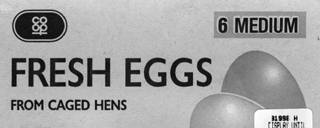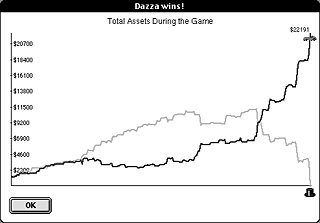| | 
- 23 December 2000
- Three Mumbai Trees
- It’s as cold here in England as something that’s really, really cold. It really is that cold, perhaps even worse.
In yet another lapse of judgment, I combined three bad photographs to make one bad image, Three Mumbai Trees. There’s something about that old retinal trap that I just can’t resist. At least I can now look at something warm, even if it is just a hot sheet of paper, fresh from the laser printer. As is almost always the case with pieces devoid of ideas, Three Mumbai Trees is best viewed in the PDF format, a technical complication that makes the work generally inaccessible as well as almost completely worthless. 
- 24 December 2000
- That Fat Scumbag Santa
- I am poetry in action.
’Twas the night before Christmas,
and all through the house,
only one creature was stirring,
and that was a louse.
- I am that louse.
Tomorrow morning everyone will be crying, “That fat scumbag Santa ate all the leftover salmon and finished off the good bottle of whisky.” Serves ’em right for worshipping false idols, I figure. 
- 25 December 2000
- A Corkscrew with a Built-in Flashlight
- I’ve never said one good thing about this so-called holiday season, and my constant whining has become too annoyingly predictable, even for me. And so it was that I decided to find something good to say about this celebration of wretched excess.
It wasn’t easy. As I contemplated my gift, a corkscrew with a built-in flashlight, Francis Picabia came to my rescue. I took some comfort in his observation, “A new gadget that lasts only five minutes is worth more than an immortal work that bores everyone.” Nevertheless, bah humbug. 
- 26 December 2000
- I Tawt I Taw a Typo
- I’m reading a great book by Jerry Beck, I tawt I taw a puddy tat. I suppose “reading” isn’t quite the right word; I’m generally enjoying the illustrations and ignoring most of the minutiae of who did what when.
I did, however, come across an interesting paragraph that was all the more intriguing because of apparent typographical errors. The terms puddy tat and putty tat are used interchangeably throughout this book, as they were by the Warner artists. In Bob Clampett’s cartoons, puddytat was used consistently; other directors and animators used whichever form they preferred. Warner Bros. has now endorsed the term “puddy tat.” Did Bob Clampett really spell “puddytat” as one word? If so, have the current bureaucrats running the Warner Bros. conglomerate snubbed Clampett by adding a space? Or did Jerry Beck work with sloppy editors? Oh dear, it looks like all these unanswered questions mean another sleepless night. 

- 27 December 2000
- Not a Great Omelette
- Although I haven’t been able to verify this apocryphal quote, Prince Otto Eduard Leopold von Bismarck allegedly said, “Laws are like sausages. It’s best if you don’t know how they were made.”
I’m afraid that goes for this morning’s omelette, as well. I made the mistake of watching Eddy prepare brunch, and noticed the main ingredient’s packaging advertised “fresh eggs from caged hens.” I asked Eddy about that, and he said he liked to know the source of his food. “I have to assume that the cheapest eggs in the store came from miserable battery hens crammed into tiny cages in a huge agricultural factory, and not from an idyllic farm full of happy chickens frolicking on the lawn,” Eddy said, “so I appreciate an honest merchant that calls a caged hen a caged hen.” Eddy waited for a response, but didn’t get one. “Anyway, at least the eggs are reasonably healthy, even if the chickens that made them probably weren’t,” he continued. “You wouldn’t believe all the stuff that’s in the butter and cheese, and I’m not talking about cholesterol, either. The mushrooms are pretty disgusting, too; I suspect they’re mostly chemicals suspended in watery fungus.” Eddy made a good omelette, but not a great omelette. I suppose that it really is true that the presentation of the meal affects the taste of the food. 

- 28 December 2000
- On Winning Eighteen Games of Monopoly
- I won eighteen games of Monopoly in a row today. It was not improbable that I enjoyed my improbably long run of good luck on perhaps the most boring day of the year 2000.
As I’ve said before, each game of Monopoly is another window into an exquisitely balanced world of probability, improbability, and chance. I can’t think of a better way to waste time, except perhaps Command & Conquer, a game that brings an entirely different set of values to the computer monitor. 
- 29 December 2000
- Truth in Drinking
- Ignorance isn’t as bad as some less ignorant people might suppose.
Take wine, for example. Even though I almost always buy the cheapest wine I can find, I nevertheless assume it was lovingly crafted by thoughtful and experienced vintners, then aged for years in oak casks in a candlelit cellar. I shut my ears whenever people start to describe the acres of rusting wine vats the size of small towns they’ve allegedly seen near Modesto, California, in Bordeaux, and elsewhere. The wine makers are doing all they can to preserve my innocence. I listened to a news story about how they’re fighting legislation that would require them to list the ingredients in their produce. The actual ingredients of the wine I drink in Europe remains a mystery, although most bottles sold in the United States note that the wine “contains sulfites.” I don’t have a problem with sodium sulfite, it’s one of the members of the Good Chemical family. That’s the same chemical restaurants use on lettuce in salad bars to prevent the torn green leaves from turning an unsightly brown; it’s the same chemical used on dried fruit for the same purpose, and the same chemical I used to add to Rodinal film developer to accentuate acutence. And then came the bottle of Cabernet Sauvignon from the Curicó Valley, bottled by Viña San Pedro SA, Lontué, Chile. Here’s what I found on the label of the British import: INGREDIENTS (greatest first): Grapes, Preservative (Sulphur dioxide). Made using: Yeast, Pectinolytic enzymes, Potassium bitartrate. Cleared using: Gelatine, Bentonite and Filtration.
- Sulfur dioxide?! That’s not the trusty sodium sulfite I know, or at least I don’t think it is. I know almost nothing about chemistry in general and sulfur dioxide in particular, and I think I’ll keep it that way. And that goes for potassium bitartrate and bentonite, too.
I appreciated the information about the gelatin, though; I now know that film and wine both contain the skin, bones, and connective tissue of animals. I must remember to tell all my purely vegetarian friends; perhaps they’ll give me all their wine. 
- 30 December 2000
- Upping the Photojournalism Ante
- Today’s newspapers feature a snapshot that could redefine photojournalism.
The news story details how Paul Kefa Mukonyi attacked the pilots of British Airways Flight 2069. The 747 came close to crashing before the intruder was overpowered and handcuffed. (My favorite part of the story was Captain William Hagan’s summary of the fracas to the hundreds of terrified passengers over the jet’s public address system: “A very nasty man has just tried to kill us all.”) The newspaper snapshot, credited only to “Reuters,” shows members of the flight crew tying up a prone Mukonyi. Now here’s the revolutionary part of the image: singer Bryan Ferry’s head is in the corner of the frame! Sweet! I figure it’s only a matter of weeks before every news photograph that doesn’t include a passing celebrity will seem wrong, just plain wrong. At first, no one will be able to describe the image’s inadequacy. Later, it will be obvious to every viewer that any event that doesn’t include someone very important was, by definition, not a very important event. I saw Bryan Ferry perform a quarter century ago during his Roxy Music days. No thanks to Paul Kefa Mukonyi, I may get to see him again. Still, I can’t help but wonder what Ferry would have been singing had the plane not pulled out of its fifteen-thousand meter free-fall. Out of the Blue? Both Ends Burning? Whirlwind? End of the Line? Could It Happen to Me? 
- 31 December 2000
- A Book a Year
- Today’s entry concludes my first five years of writing a daily artist’s notebook of sorts. This also represents a dangerous new development: the publication of my new year’s resolution.
My past resolutions have been fairly innocuous, mostly about being more smart and less fat. As with most resolutions, I’ve failed to keep them, and have become noticeably fatter and stupider in the half decade since I made my successful resolution—so far, at least—to keep a daily notebook. I’ve decided that I’m going to publish a book a year until I die. I’ll probably regret writing those words tomorrow, but tomorrow’s another millennium. 
last transition | index | next weak
©2000 David Glenn Rinehart
| |

